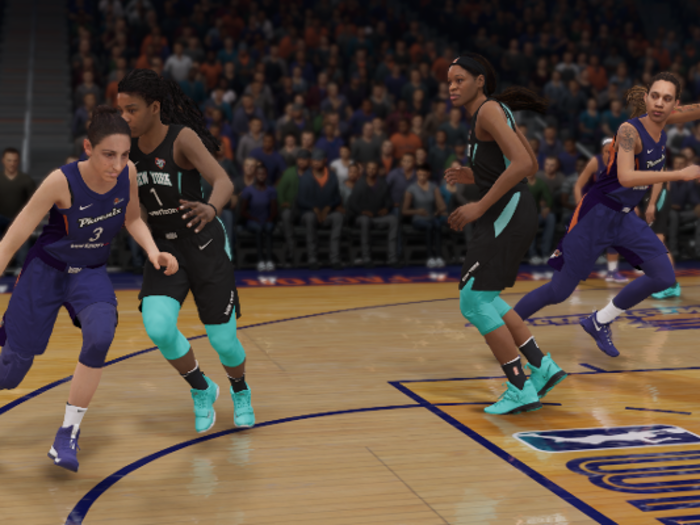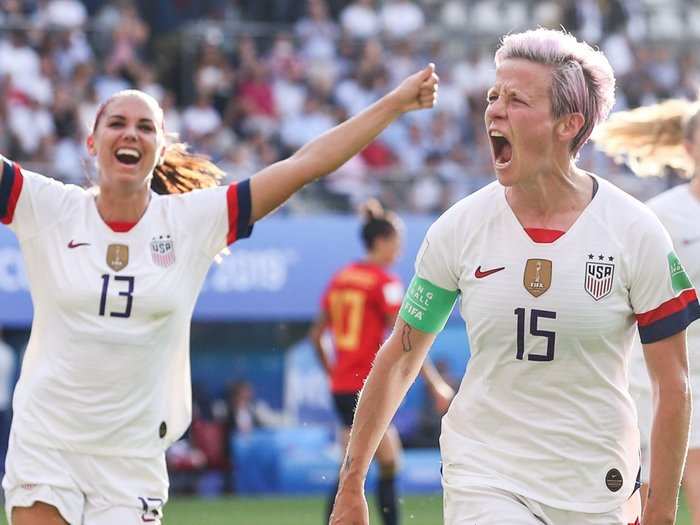Last year, "FIFA 18" received a massive update for the Men's World Cup, and "FIFA 19" still has twice as many men's teams as women's teams.
While the Women's World Cup update for "FIFA 19" was free, it pales in comparison to the massive update "FIFA 18" received for last year's Men's World Cup. "FIFA 18" got a free update, including the full rosters of all 32 qualifying men's teams and a variety of World Cup specific content.
"FIFA 18" had a fully customizable World Cup mode that lets players create custom tournaments with national teams that didn't even qualify for the men's event, like USA and Italy. Electronic Arts even went so far as to include 12 different stadiums used during the 2018 World Cup in Russia.
EA has done a good job including female athletes in its games, but they've been treated like an afterthought for years.
"FIFA" started including women's teams in 2016, but this recent update demonstrates that the series is still more invested in presenting the men's game.
"FIFA" has had past issues gaining the rights to some teams — for example, the Croatian men's team is not in "FIFA 19," despite finishing second in the 2018 World Cup, and the popular Brazilian men's team is also filled with many generic players. But "FIFA 19" still managed to include more than 50 men's national teams.
EA faced a similar problem with the inclusion of WNBA players in "NBA Live 19." WNBA teams could play against each other in exhibition mode, but only NBA teams could play a full, regular season.
EA's lack of investment in the Women's World Cup echoes other problems facing women's soccer, like lack of exposure and unequal pay.
The lack of investment in the video game version of the World Cup mirrors ongoing, real-world concerns about a lack of media exposure and unequal pay for women's soccer teams.
In March, all 28 members of US Women's National Team, the defending World Cup champions, filed a joint lawsuit accusing the US Soccer Federation of gender discrimination and unequal pay. A group of players also accused the USSF of wage discrimination in 2016, leading to a collective bargaining agreement. The US women's team reportedly generated more ticket revenue than the men's team from 2016 to 2018, but women still earn a fraction of what the men do.
Regardless, EA's underwhelming update for such a major cornerstone of women's soccer seems like a missed opportunity at a time when the sport is peaking in popularity.



